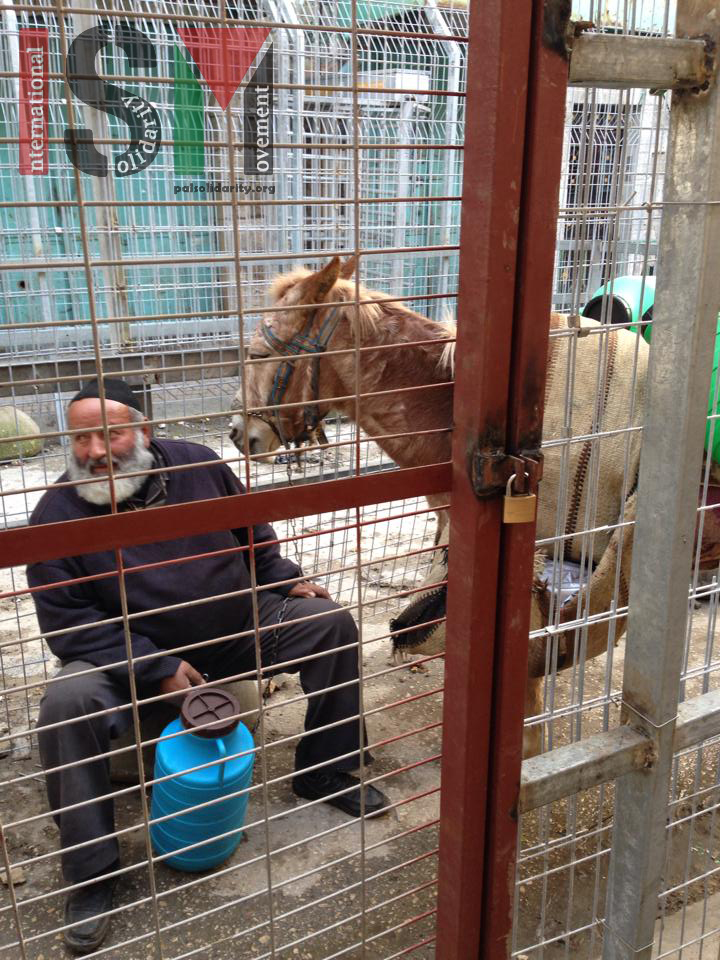Category: Reports
-
VIDEO: Israeli soldiers close key checkpoint in Hebron
31st December | International Solidarity Movement, Khalil team | Hebron, Occupied Palestine At approximately 14:30 yesterday afternoon, ISM activists approaching Checkpoint 56 from both directions found that it was closed and Palestinians were stuck on either side. Israeli soldiers gave conflicting excuses for closing the checkpoint, none of which were supported by any apparent evidence. On the H2 (Israeli controlled) side…
-
Palestinian bystander shot dead during nightly Israel army arrest raid
18th December 2014 | International Solidarity Movement, Ramallah team | Qalandiya, Occupied Palestine The Israeli army shot dead a young Palestinian man in Qalandiya refugee camp. The army invaded the camp at around 3:00 am on the 16th of December with the aim of making arrests. The young people of the camp came out to…
-
VIDEO: No donkeys allowed
17th December 2014 | International Solidarity Movement, Khalil team | Hebron, Occupied Palestine Mohammad Saleh, a sixty-six-year-old Palestinian resident of Tel Rumeida, al-Khalil (Hebron), waited with his mule outside Shuhada checkpoint for nine hours over the course of two days. He spent four hours waiting before being allowed through on Monday (15/12/14) evening. He then spent five…



